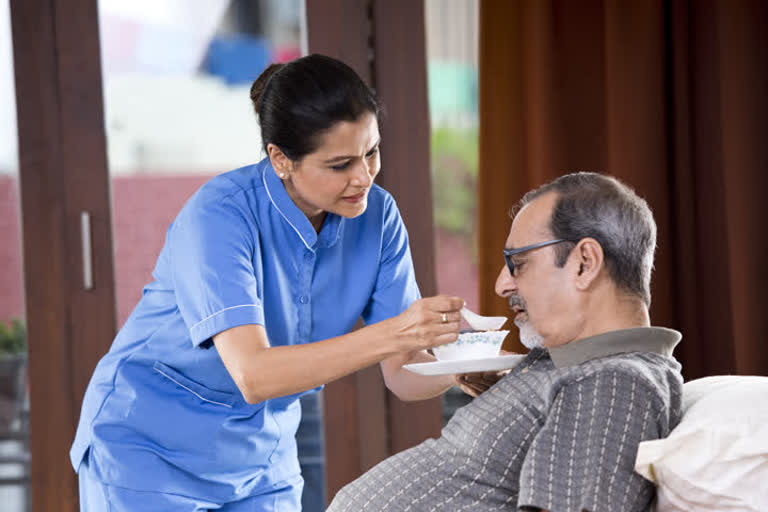Living becomes a serious challenge for the patient as they are in the same world but not with the same life they can live in. Dependency on the caregiver or the family is like the new routine they are trying to cope up with and this can take a toll on the one who is to care for such patients.
Dr. Janhvi Kathrani, Physiotherapist, Alternative Medicine Practitioner and Yoga Teacher,discusses some points essential for them to know and work on; thus, they can play a vital and effective role in patients’ new phase of life.
Traumatic Brain Injury patient are to be handle with care and tenderness to prevent various adverse situations like:
- Bed sores- change the position of the patient in bed or even in sitting, every two hours so that it will not create any pressure sores on bony points especially on buttocks or heel area.
- Chocking: either feed semi solid food or liquids (except those patients on tube feeding) to prevent choking.
- Nutrients deficiency: Ensure a well chalked out diet plan to prevent any deficiency and to maintain the energy levels in the body.
- Weakness or muscle wasting: whenever a muscle or a part of the body is not used, it undergoes wasting. Hence, start all the passive exercises for all limbs to maintain the muscle strength and joint vitality.
- Depression: Try communication techniques with the patient. Encourage them to write or draw what they want to speak. Colouring or playing on the ground with some available equipment suitable to them can help to make them feel alive.
Secondly, there are some points to keep in mind while taking care for such patients to enhance their recovery as well as encourage for better new life.
- Motivation: Inspire and motivate the patient to do theirphysiotherapy sessions, exercises, movements, as there is general tendency of these patients to avoid doing them citing boredom or pain. This is very important. Help them get back to all the activities they used to do and focus on the independency in the daily living. Make them believe they can lead a better life in spite of their injuries.
- Encourage: for better physical therapy work outs suitable for them to have the muscle and movement control in the body.
- Sensations learning: sensations may get damaged in such patients; thus, help them to develop the senses control by educating them for their sensations and urges. For example, hot and cold feeling, pain sensations, urinary control etc.
- Educate patients about their condition: when a person knows his limitations and strength, he can succeed. Teach them what they have gone through and how is everything in their body. From their limit to the goal they can achieve. This may help someone to deal with his/her new challenges better way.
- Memory enhancement: Assist them with their understanding, perceptions and memory by various games as well as task-oriented puzzles or activities.
- Outdoor activities/Socialization: Always give priority to this point. Its important for the patient to have a connect with the outside world. Taking the patient for walks in natural surroundings, either an assisted walk or just strolling them around on their wheel chair and helping them socialize can heal many wounds and also increase immunity as the healing power of body is stimulated by the positive environment.
A judicious blend of all the above helps the care giver in giving quality care to these patients.
For your queries contact Dr. Janhvi Kathrani atjk.swasthya108@gmail.com
